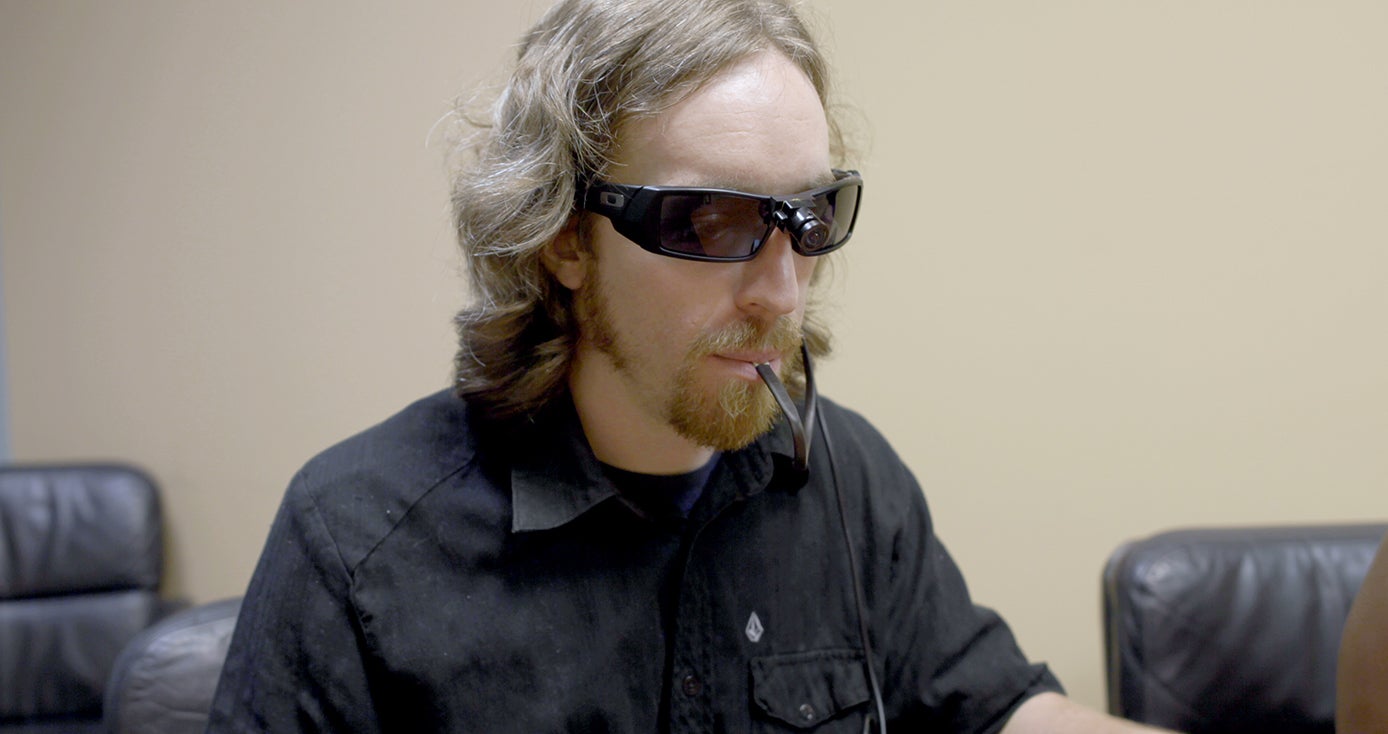
Subscribe to Pittwire Today
Get the most interesting and important stories from the University of Pittsburgh.Vision-to-Touch Innovation, Pitt Researchers Featured in Documentary Airing on PBS
“Sight is arguably our most important sense,” says Sir Elton John in a documentary film featuring innovations from the Louis J. Fox Center for Vision Restoration of UPMC and the University of Pittsburgh.
John narrates “Sight: The Story of Vision,” a one-hour documentary examining vision in humans and the futuristic technology being tested to aid those with vision impairments. The World Health Organization says 285 million people worldwide have impaired vision.
“It’s a fascinating, critically important subject, because everyone cherishes their vision,” said University of Pittsburgh alumnus David Fleishman (A&S ’65), a retired ophthalmologist who served as the film’s executive producer. “It’s our most treasured sense.”
In the documentary, Joel Schuman, adjunct professor and former chair of ophthalmology at Pitt, and Ellen Mitchell, a neuro-ophthalmologist at UPMC, discuss sensory substitution — non-invasive techniques which give people who have visual impairments the ability to "see" shapes with the aid of futuristic sensory technology.
One of these substitution innovations featured at the Fox Center is BrainPort, a special pair of glasses with a camera attachment. The camera takes visual information and transforms it into an electrical stimulus on a lollipop-like device. The information transmitted to the brain via the tongue allows people with limited vision to make out shapes through feeling. A similar auditory system that transmits sound information to the brain via a hearing aid-like device is also being researched at the Fox Center.
With just weeks of training, these devices allow people who have impaired sight to have an experience of the visual world.
“Our goal is to be able to use technology that would essentially plug directly into the brain and provide true visual perception,” Schuman says in the film.
Film crews traveled to South Africa, Australia and Vietnam, among other places, and interviewed some of the world’s leading ophthalmologists, optometrists, technologists and humanitarians to assess current vision impairments, such as blindness and glaucoma, and innovations that could help augment and even restore sight. Stories of people living with impaired vision are also featured, and the film itself assists viewers with color blindness through color correction editing. “Sight” has been picked up by PBS and has been broadcast on stations across the United States about 1,400 times. It also is available on Amazon, iTunes and Google Play.
Fleishman helped to underwrite the film and had colleagues participate in the film’s interviews as well as provide expert analysis via an advisory board.
“David was instrumental in putting together the board,” said film director and writer Kris Koenig. “He was the ramrod. He was a key player in the whole production.”
Koenig met Fleishman in 2008 while working on another documentary film project, “400 Years of the Telescope.” For the 2008 project, Fleishman provided Koenig and other executives photographs of eyeglasses from the Middle Ages.
Fleishman’s research and his involvement at the genesis of the “Sight” project earned him a Presidential Medal from the New England College of Optometry in May.


